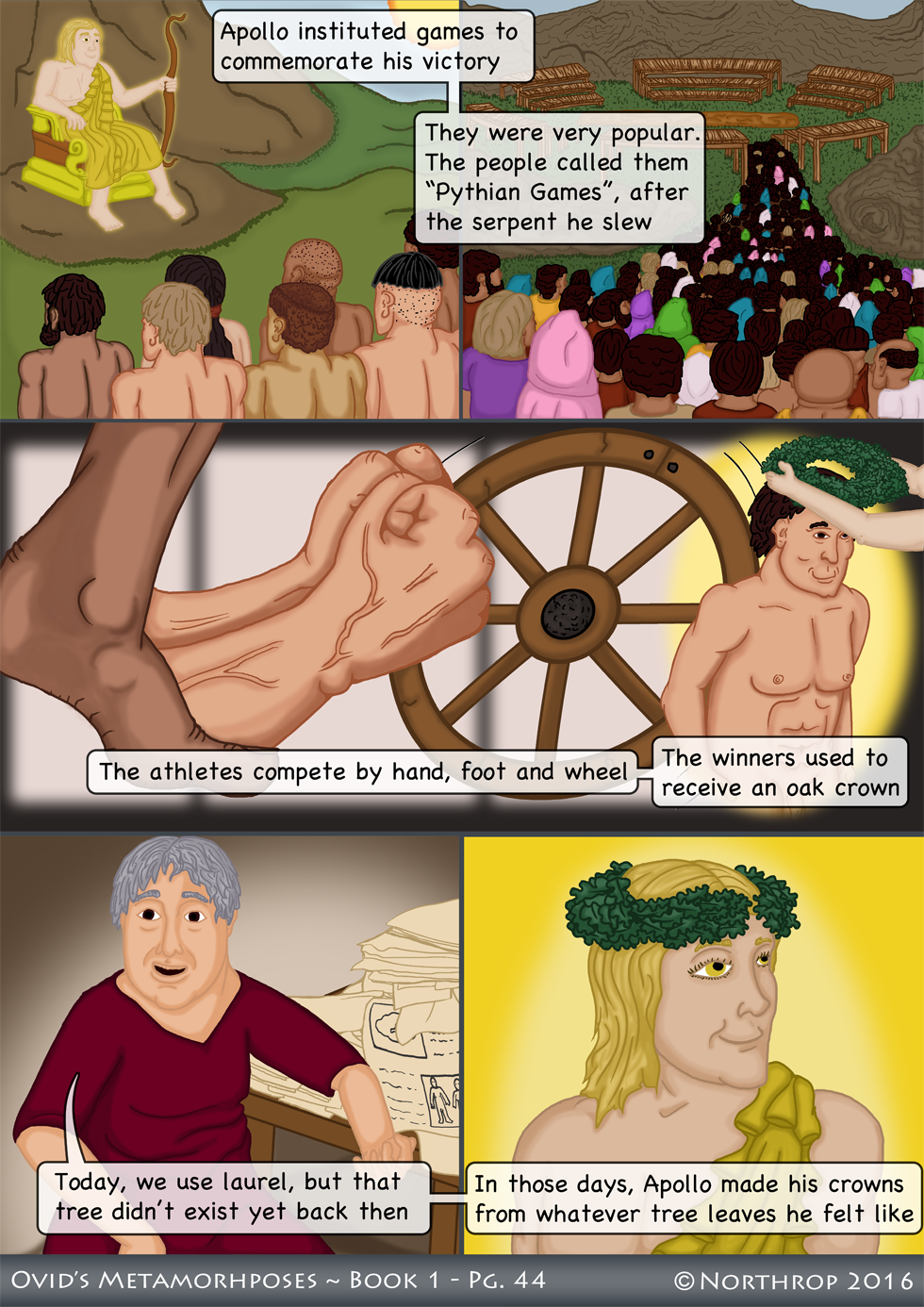Met. 1.445-51 – The Pythian Games
EDIT (25 May 2016): Fixed the typo in the penultimate panel, and corrected the line numbers for the Latin text
neve operis famam possit delere vestustas,
instituit sacros celebri certamine ludos,
Pythia perdomitae serpentis nomine dictos.
hic iuvenum quicumque manu pedibus rotave
vicerat aesculeae capiebat frondis honorem.
nondum laurus erat longoque decentia crine
tempora cingebat de qualibet arbore Phoebus.
(Met. 1.445-51)
Lest time erase the fame of his deed,
he instituted sacred games, a contest to which many throng,
and called them “the Pythian [Games]” after the serpent he vanquished.
Whichever youth should win by hand, foot or wheel
received the honour of an oak crown.
The laurel didn’t exist yet and in those days
Phoebus [Apollo] wreathed his long hair with whatever tree he liked.
One… last… excursis… This is actually an aetiology (a story about how something came to be – I’ve discussed the concept in earlier posts) that serves as a link between the Python story and the coming story of Apollo and Daphne. However, since the story of Apollo and Daphne already has a more compelling link (you’ll see what that is) my suspicion is that Ovid just wanted to get this factoid in there. It makes sense in light of the Hellenistic tradition, where poets would try to show off their learning by including information. It’s kinda like that period in the 90s and 00s, when all the scifi movies had to have some minor character who spouts scientific trivia throughout. To be fair to Ovid and the Hellenistics, though, this was a time before Wikipedia (I guess so were the 90s and 00s, but shush, I’m making a point here). People didn’t really have unlimited trivia at their fingertips, and so poetry helped to transmit knowledge to a wider audience than just the scholars in the library of Alexandria (burned down already by Ovid’s time, sadly). If you like your ancient trivia, then Hellenistic poetry is definitely the place to go!
If you don’t like all this trivia, then there is good news for you too: this the end of the explicit trivia for the time being! We’re actually on the cusp of a major shift in the poem. Up until this point, most of the stories have been cosmological in theme. We said that ‘Lycaon’ was the first ‘standard’ metamorphosis tale, but in truth, even that story was connected to the cosmic flood. In the very next line (Met. 1.451), Ovid will signal a shift to a more concrete theme: eroticism. We’ll discuss the wording of the next line when the corresponding page is posted. For now, I think it is important to emphasise that the introduction to the Metamorphoses, as we have known it so far, is ending, and giving way to the poem proper. It’s a really exciting moment, and I hope you will all stick around for ‘Apollo and Daphne’!

Discussion ¬